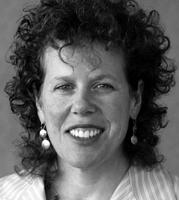North Atlantic Forum
 From climate change to economic turmoil, our rural communities are facing unprecedented challenges. The 2013 North Atlantic Forum in Hólar, Iceland, will examine how those challenges impact the development of rural tourism. This international conference critically explores ideas, best practices and innovation from around the North Atlantic rim, with relevance to rural areas everywhere.
From climate change to economic turmoil, our rural communities are facing unprecedented challenges. The 2013 North Atlantic Forum in Hólar, Iceland, will examine how those challenges impact the development of rural tourism. This international conference critically explores ideas, best practices and innovation from around the North Atlantic rim, with relevance to rural areas everywhere.
The North Atlantic Forum (NAF) is a biennial conference for scholars, community leaders, local government officials, businesspersons, and other practitioners from the broad North Atlantic, seeking to facilitate information exchange, knowledge mobilization and research dissemination among its members.
NAF 2013 - Rural Tourism in Changing Times is a collaboration between:
- North Atlantic Forum, a ‘collegial assembly’ built on the network set up by the North Atlantic Islands Program, based at the Institute of Island Studies, University of Prince Edward Island, in Charlottetown, Canada: www.upei.ca/iis/naf
- Canadian Rural Revitalization Foundation, whose mandate is to revitalize rural Canada through education and research for rural leaders in the community, the private sector and in government: https://crrf.ca/
- Department of Rural Tourism, Hólar University College, North Iceland, set up in 1996, which collaborates closely with tourism practitioners and now offers four different programs of study in Rural Tourism and Event Management that embrace both theory and practice. www.holar.is
In times of global economic turmoil and climate change, this conference will explore the challenges, practices of and the opportunities in smart and sustainable rural tourism. The programme will address the development challenges through four interrelated and strategic perspectives - Community, Experience, Economy and the Environment. Through these four interrelated themes and a highly participatory programme the conference will critically explore strategic opportunities for innovative, yet concrete and practical solutions for sustainable rural tourism.
Paper proposals (title and abstract of not more than 300 words) should be submitted through https://www.naf2013.holar.is/index.php/conference/accepted-abstracts by January 15, 2013.
All presenters must register for the conference.
Key dates
January 15, 2013 – deadline for submission of abstracts.
January 31, 2013 – notification of accepted abstracts.
Registration – Early Bird (25% discount) – March 29, 2013
April 26, 2013 – deadline for registration.


 CANADA REVENUE AGENCY REPRESENTATIVES
CANADA REVENUE AGENCY REPRESENTATIVES